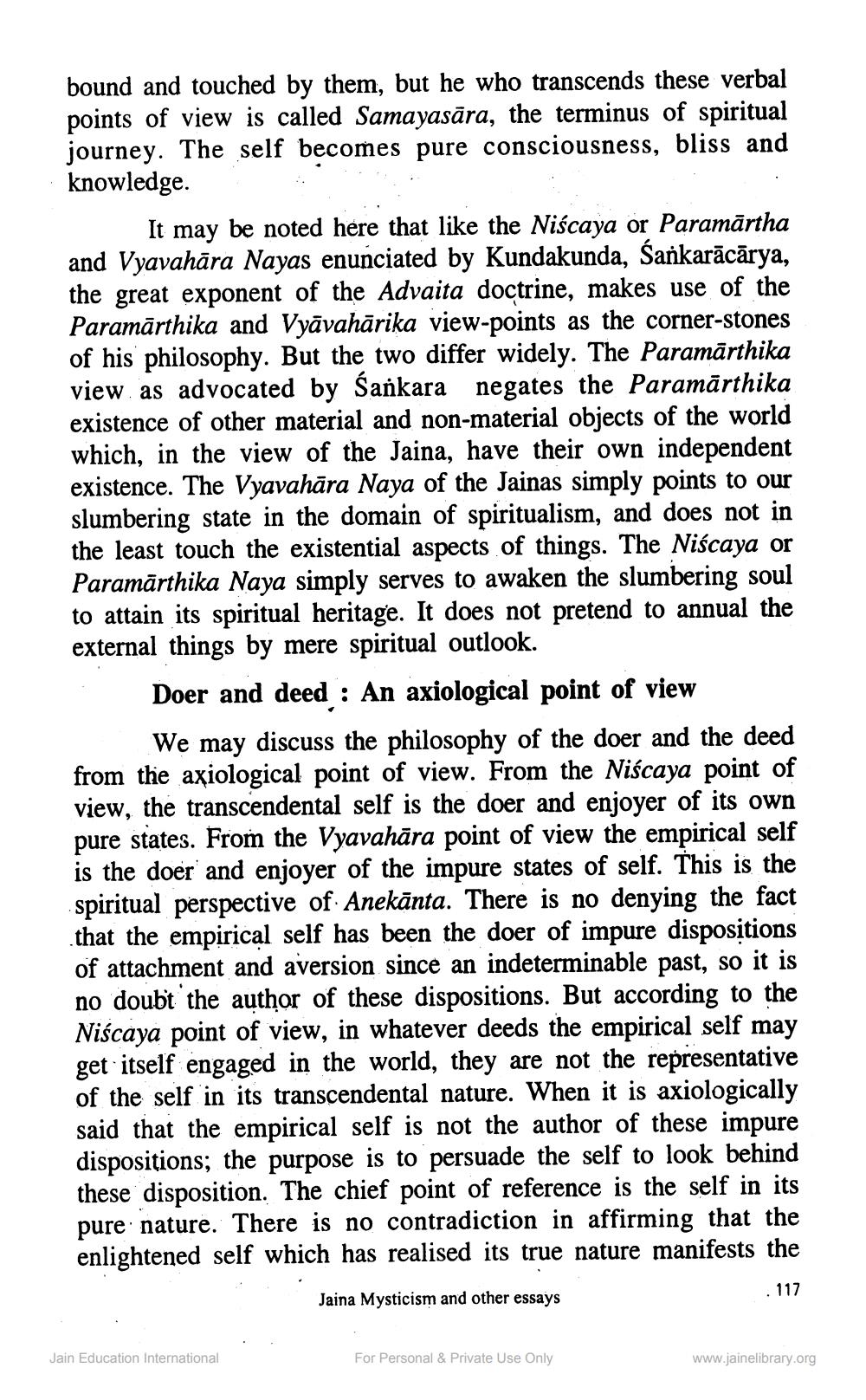________________
bound and touched by them, but he who transcends these verbal points of view is called Samayasāra, the terminus of spiritual journey. The self becomes pure consciousness, bliss and knowledge.
It may be noted here that like the Niścaya or Paramārtha and Vyavahāra Nayas enunciated by Kundakunda, Sankarācārya, the great exponent of the Advaita doctrine, makes use of the Paramārthika and Vyāvahārika view-points as the corner-stones of his philosophy. But the two differ widely. The Paramārthika view as advocated by Sankara negates the Paramārthika existence of other material and non-material objects of the world which, in the view of the Jaina, have their own independent existence. The Vyavahāra Naya of the Jainas simply points to our slumbering state in the domain of spiritualism, and does not in the least touch the existential aspects of things. The Niscaya or Paramārthika Naya simply serves to awaken the slumbering soul to attain its spiritual heritage. It does not pretend to annual the external things by mere spiritual outlook.
Doer and deed : An axiological point of view
We may discuss the philosophy of the doer and the deed from the axiological point of view. From the Niscaya point of view, the transcendental self is the doer and enjoyer of its own pure states. From the Vyavahāra point of view the empirical self is the doer and enjoyer of the impure states of self. This is the spiritual perspective of Anekānta. There is no denying the fact that the empirical self has been the doer of impure dispositions of attachment and aversion since an indeterminable past, so it is no doubt the author of these dispositions. But according to the Niścaya point of view, in whatever deeds the empirical self may get itself engaged in the world, they are not the representative of the self in its transcendental nature. When it is axiologically said that the empirical self is not the author of these impure dispositions; the purpose is to persuade the self to look behind these disposition. The chief point of reference is the self in its pure nature. There is no contradiction in affirming that the enlightened self which has realised its true nature manifests the Jaina Mysticism and other essays
. 117
Jain Education International
For Personal & Private Use Only
www.jainelibrary.org




